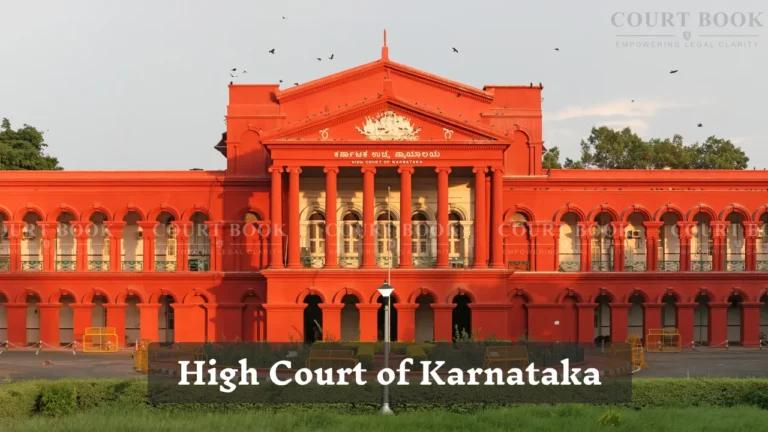The Karnataka High Court has upheld a trial court’s decision allowing a plaintiff in a specific performance suit to summon the defendant as a witness. The court emphasised that while the plaintiff can seek to call the defendant to the witness box, such a request cannot be treated as a matter of right and must be considered carefully by the trial court.
The case involved M. Sharadamma and others, who filed a writ petition (W.P. No. 50575/2019) challenging the trial court's order dated 12.09.2019 in O.S. No. 80/2017. The plaintiffs had sought to compel the defendant, Sharadamma, to appear as a witness in a case concerning the enforcement of a sale agreement.
The petitioners’ counsel argued that the plaintiff should prove the case based on his own evidence and should not be allowed to compel the defendant to testify in his favour. It was contended that such a move contradicts legal principles and amounts to forcing the opponent to support the plaintiff’s case.
“The plaintiff-respondent No.1 has to prove the case based on his pleadings and evidence and cannot compel the petitioner-defendant No.1 to speak in the witness box in his favour,” the petitioners submitted.
In response, the counsel for the plaintiff argued that there is no prohibition in law preventing a party from summoning the opposing side as a witness. He stated that the defendant's unwillingness to testify, despite being a party to the disputed agreement, forced the plaintiff to file the application.
Justice Vijaykumar A. Patil referred extensively to decisions by various High Courts and the Supreme Court, including the landmark ruling in Mohammad Abdul Wahid vs. Niloufer and Others (2024), in which it was held that there is no legal distinction between a party testifying on their own behalf and a regular witness.
The phrase ‘so far as it is applicable’ in Order XVI Rule 21 does not suggest a difference in the function performed. In other words, there is no difference between a party to a suit as a witness and a witness simpliciter, the High Court observed, quoting the Supreme Court ruling.
The High Court reaffirmed that Order XVI Rule 1 of the Civil Procedure Code (CPC) allows a party to list any person, including an opposing party, as a witness. Additionally, Rule 21 provides that a party required to give evidence shall be subject to the same rules as any other witness. However, it also recognised that compelling a real opponent to testify must be done with caution.
“The Trial Court is required to exercise the discretion judiciously, more particularly when a party to the suit seeks to summon his/her opponent as a witness,” the High Court stated.
In this case, the trial court had evaluated the necessity and relevance of summoning the defendant and concluded that it was warranted. The High Court supported this reasoning and noted that it had no authority under Article 227 of the Constitution to substitute its view over that of the trial court when the latter had exercised its discretion correctly.
The Trial Court, on judicious application of mind, came to the conclusion that the opponent’s evidence was necessary and allowed the plaintiff’s application accordingly, the court said.
The petitioners had relied on past judgments which disapproved of the practice of summoning an opponent as a witness. However, the High Court distinguished those precedents, pointing out that the law does not categorically bar such action, and emphasised that discretion lies with the trial court to assess the purpose and relevance.
Read Also:-Karnataka High Court Hears X Corp’s Plea Against Arbitrary Content Blocking Under IT Act
The High Court also made it clear that in cases where a party is unwilling to testify, courts may draw adverse inference from such conduct. Still, if the evidence is crucial for just adjudication, the court can permit summoning.
“Under such circumstances, the Court can exercise its discretion in favour of the party seeking to summon the opponent as a witness,” the High Court noted.
Ultimately, the writ petition was dismissed as being without merit. The High Court upheld the lower court’s order, reiterating the position that while such summoning is permissible, it must be grounded in judicial reasoning and not exercised arbitrarily.
The case was argued by Advocate Deepak S. Shetty for the petitioners and Advocate S.D.N. Prasad for the first respondent.
Case Title: M. Sharadamma & Others vs. Kiran Kumar & Others
Case No.: W.P. No. 50575/2019
Date of Judgment: 09 July 2025
Bench: Justice Vijaykumar A. Patil















